Why the warmer moments of a bleak show are its most important
WARNING: SPOILERS THROUGH SEASON 8, EPISODE 4 OF THE SHOW!! (but not beyond)
By Brian E. Frydenborg (LinkedIn, Facebook, Twitter@bfry1981) May 12-13, 2019 (updated May 17 to add a quote)
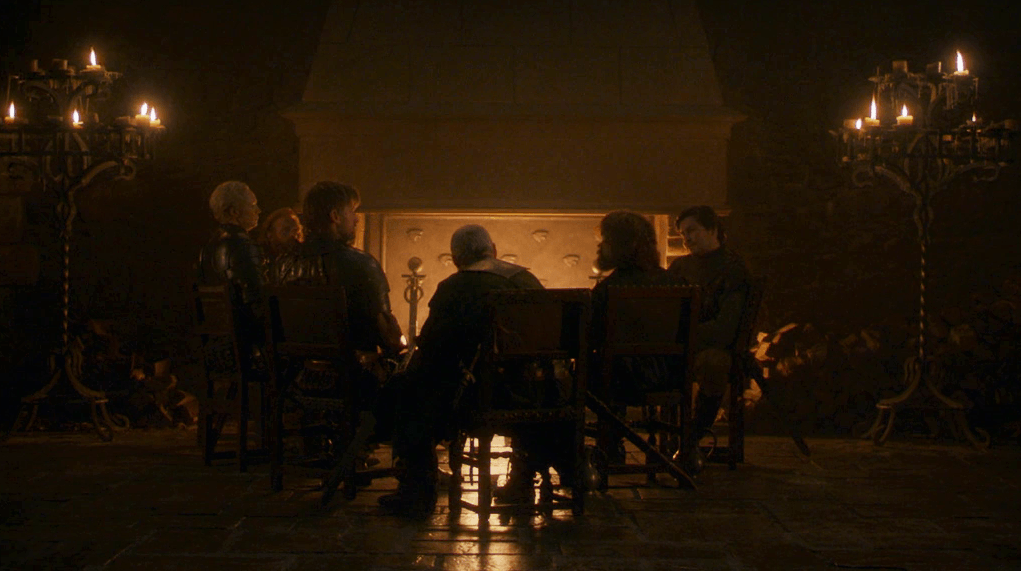
All photos from HBO
AMMAN—As I contemplate life, art, and their imitations of each other before the final two episodes of HBO’s magisterial Game of Thrones, it is worth reflecting on the journey of the show’s characters and, yes, our journey with them.
Of course, not all the characters left standing as we entered the final two-thirds of the final season are/were “good guys” or even anti-heroes, but even the most wicked among them has also suffered deeply and grievously. We now find ourselves rooting for characters that killed (The Hound, Jon [sorry Olly], Theon) or attempted to kill (Jaime) children, just to point out one crazy aspect of this show. In fact, much with like another magisterial HBO show, The Sopranos, one of the most unique things about this show is the surprising level of empathy, sympathy, and respect it generates in the unlikeliest of situations, both in those watching and between the characters themselves. Just to name a few such situations in which characters working together in the final season on the eve of the climactic Battle of Winterfell: Night King edition had previously found themselves in terrible relations with each other:
- Ser Davos and Tyrion commanded forces against each other at the Battle of the Blackwater.
- Jorah kidnapped Tyrion.
- Brienne was Jaime’s captor.
- Beric fought The Hound and was killed by him (before being revived by Thoros and the Lord of Light).
- Beric gave Gendry against his will to Melisandre, who nearly sacrificed him.
- Jaime pushed bran off of a tower with the intent to kill him and it left Bran crippled.
- Jaime and the Starks fought a war against each other and Jaime personally wounded Ned.
- Jaime and Daenerys nearly killed each other on the battlefield.
- Jaime had said he would kill Tyrion for killing their father, Tywin.
- Tormund and Jon were mortal enemies.
- The Hound, serving Joffrey, killed Arya’s friend, the butcher’s boy.
- Theon betrayed the Starks and took Winterfell from them.
All of these people came to later join forces with some degree of respect, enthusiasm, and often even affection. Incredibly, in the situations over the course of the show through the battle of Winterfell and, it seems, beyond in some cases, these folks take the maxim of Nelson Mandela (“To make peace with an enemy one must work with that enemy, and that enemy becomes one’s partner”) to a beautifully artistic height, as insane as it might sound to invoke Mandela and Game of Thrones in the same sentence.
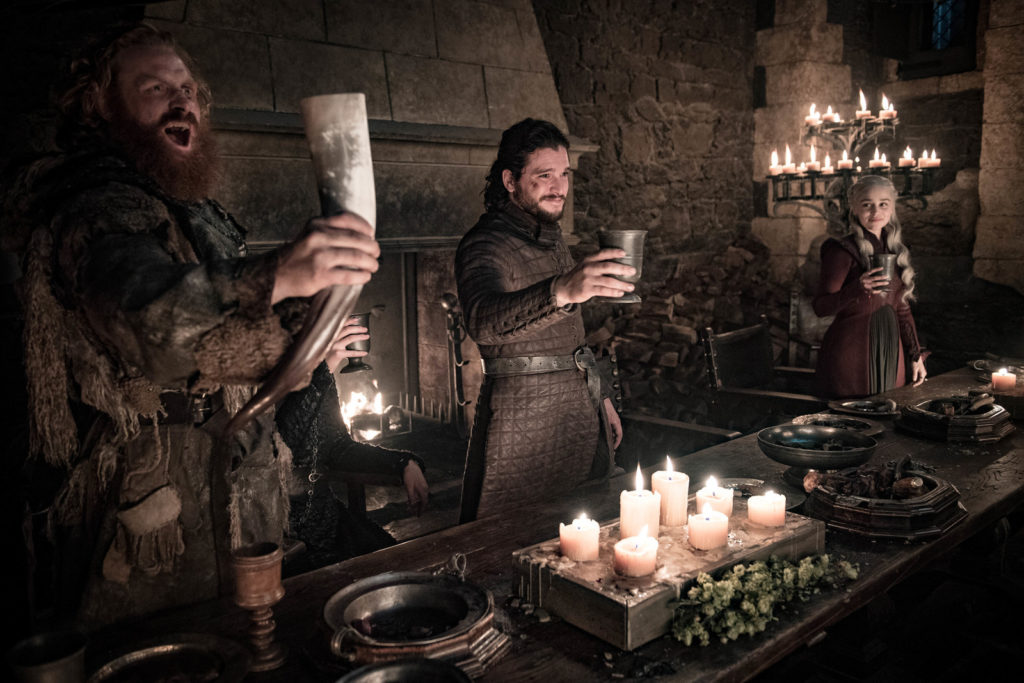
In an age in which empathy, sympathy, and respect is in ever shorter supply, this aspect of the show is without a doubt one of the most culturally enriching and healing elements it has bequeathed to the world, and make no mistake about it, Game of Thrones is global and a part of human culture in a way few works of fiction in history have been, putting it on par with Tolkien’s The Lord of the Rings and the Bible (I kid my religious readers… well, not really). That one of the most brutal shows ever in the history of television may also be helping to make us kinder and remind us all of our common humanity is part of the stunning joy that this show has become. There is still plenty of time for betrayal and backstabbing, but at least up until this point, there has been a coming together despite the daunting odds and clashing personalities that has been refreshing.
In particular, the second episode of this final season reminds us that, under the right conditions (and threats), almost any set of people can come together and share their humanity. The small moments of intimacy between characters we’ve known for eight years and who’ve often been mortal enemies, or at least at odds with each other, was once of the most unique series of moments in the show and, indeed, television or cinematic history, as rarely do audiences have scenes that take the time to show us such non-rushed, imitate moments between characters we’ve known for nearly a decade but so rarely got to see interact in this way or interact at all, especially when they’ve so often been enemies, all capped with a barrier-breaking knighting scene for the ages and subsequent warm toast.
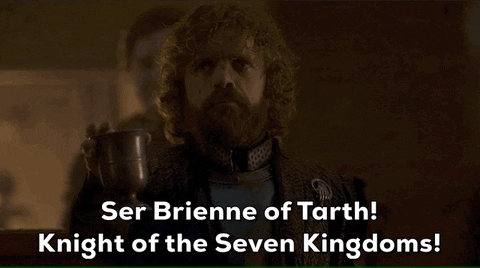
Another thing you think of as you watch this final season is that one of the first overall themes that really sticks with you is that flexibility is a key survival tool. Some of the most important characters that are still with us—Daenerys Targaryen, Jon Snow, Arya Stark, Sansa Stark, Bran Stark, Tyrion Lannister, Jaime Lannister, Cersei Lannister, Sandor “The Hound” Glegane—have been able to evolve as the conditions demanded. Characters that did not evolve—Ned Stark, Joffrey Baratheon, Catelyn Stark, Robb Stark, Tywin Lannister, Stannis Baratheon, Tommen Baratheon—met with untimely ends (to say the least).
The other thing that really sticks with you is how so much death has consumed the land and how pyrrhic almost all of these victories have been. Of the six main great families of Westeros in the story—the Baratheons, the Starks, the Lannisters, the Greyjoys, the Martells, the Tyrells—all of them have been devastated, losing not only their heads of their households, but others as well, in addition to huge portions of their bannermen and lords. The Wildlings and Night’s Watch are mostly wiped out, and it seems the Giants and the Children of the Forest might even be extinct. There’s also only one dragon left. There’s (almost?) a tragic pointlessness to it all, these petty squabblings between houses, as is often the case in real life (see my take on WWI for West Point’s Modern War Center here); of course, most people dying in a war would hope their death has some great meaning and makes some big difference, but that is far too often not the case. As Tyrion says in episode four of season eight, “What is the ‘Realm?!’ A vast continent, home to millions of people, most of whom don’t care who sits on the Iron Throne!”
Perhaps the most depressing thing other than Westeros truly becoming, perhaps futilely, a “Feast for Crows,” is that (BIG SPOILER), as soon as the Night King and the Army of the Dead are defeated (and even a bit during the battle), squabbling about who will hold what title and bend the knee to whom comes right to the forefront, with alliances apparently unraveling even before their casualties are fully mourned. As Tyrion tells Davos during the celebration after the battle, “We may have defeated them [the dead], but we still have us to contend with.” All this, too, is frighteningly realistic, with perhaps the Cold War between the United States and the Soviet Union beginning even in the final stages of WWII while they were still allies only the most prolific example that comes to mind out of many in history.
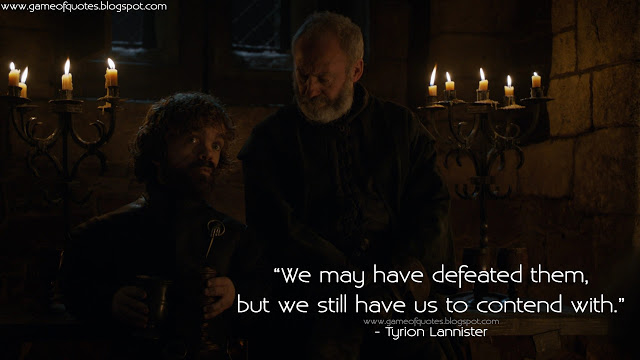
Even in a world of dragons, Giants, Children of the Forest, White Walkers, wights, wargs, and a three-eyed raven, it seems people really are the final threat. In our world, we don’t have such horrors to force us to more or less unite, and even in the world of Game of Thrones, that unification seems ever so brief, all the more depressing when one contemplates how hard it is without supernatural threats to transcend conflict in our real world.
Game of Thrones may offer some individual stories of redemption and noble sacrifice, but its bleakness, as was always the intention of its creator, was always meant to reflect more our own actual world than that of the staple worlds of the fantasy genre. Perhaps it is with its deep reminders of our own world that Game of Thrones has managed to become such a phenomenon. Even after the tropiest feel-good battle against the dead, we are so quickly brought back to the misery of human vs. human conflict.
Perhaps in making us appreciate how tragic our own world is, even when reflected in fantasy—and how rare the moments of uplifting transcendence can be—Game of Thrones may help us to appreciate how precious, and worthy to strive for, such transcendent moments of understanding, empathy, cooperation, and peace can be. May the misery and death of Westeros inspire us to overcome the death and misery all too common in our own world. If we can grow to love controversial characters like Jaime, Theon, and The Hound, perhaps we can find more room in our own hearts to understand, work together with, and even forgive our enemies in the real world, no matter how bad the sins of the past or the wounds inflicted, if we can find a real effort at redemption in them, as each of those characters in the show demonstrated with great effort and sacrifice after the many evils they had committed. Having had, just before finishing this essay, a pointless argument in the Middle East (one of many I’ve had) with a friend on the Israeli-Palestinian conflict, and with my futile effort to try and engender some level of empathy and understanding of the other side within this friend falling far short, I can say that the rare empathy amidst the bleakness Game of Thrones gives us is just as precious, important, and in short supply in Westeros as it is in earth in 2019. If the show (and books) can help many of its viewers (and readers) appreciate this and inspire them to keep trying or to try harder to create such moments of empathy, the show will have more than earned is viral fame with that kind of transcendence and heart.
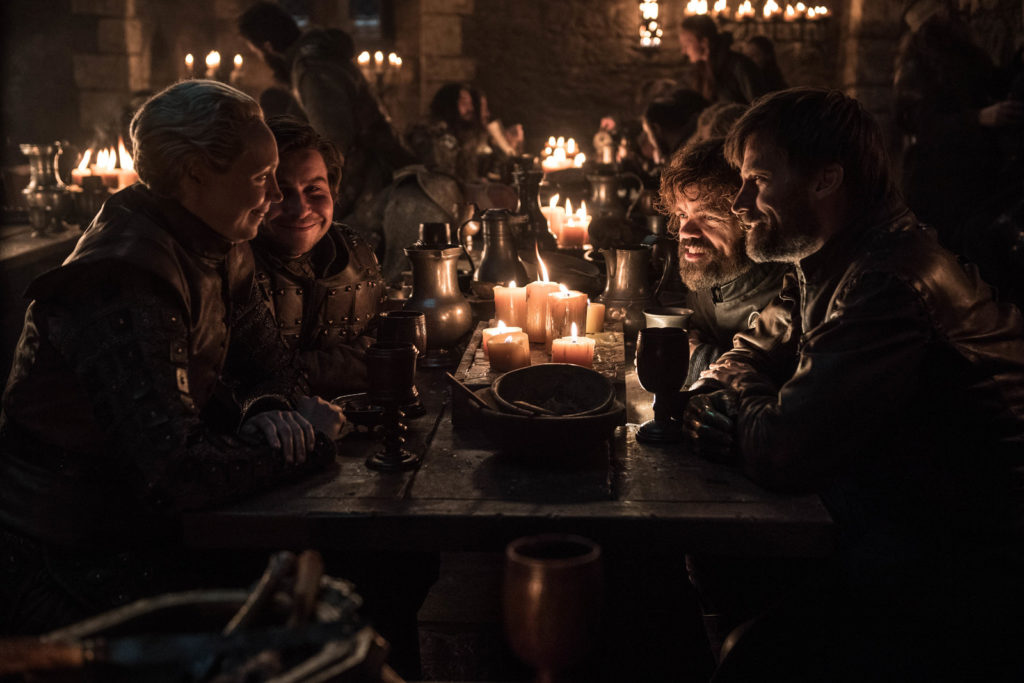
See related article: Top Political & Foreign Policy Lessons from Game of Thrones
© 2019 Brian E. Frydenborg all rights reserved, permission required for republication, attributed quotations welcome
Brian E. Frydenborg is an American freelance writer, academic, and consultant from the New York City area currently based in Amman, Jordan. You can follow and contact him on Twitter: @bfry1981
If you appreciate Brian’s unique content, you can support him and his work by donating here
Feel free to share and repost this article on LinkedIn, Facebook, and Twitter. If you think your site or another would be a good place for this or would like to have Brian generate content for you, your site, or your organization, please do not hesitate to reach out to him!